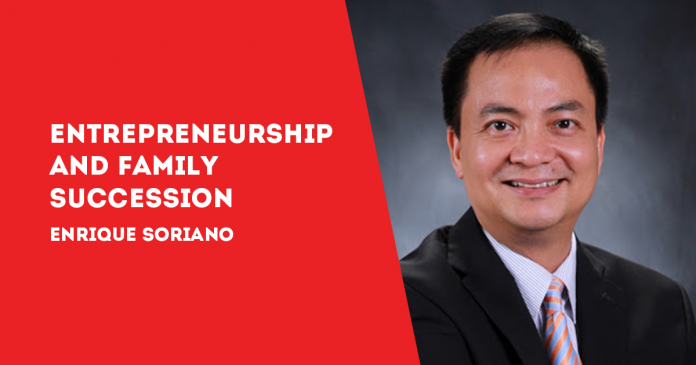
BY PROF. ENRIQUE SORIANO
FAMILY-owned businesses are a cornerstone of many economies worldwide, contributing significantly to job creation and economic growth. These enterprises often operate on principles that prioritize family values, loyalty, and a sense of shared responsibility. While fairness is a fundamental principle in any business, equating fairness with strict equality can sometimes be detrimental to the success and sustainability of a family-owned business. In this article, we will explore why fairness should not always mean equality in such enterprises and how adopting a more nuanced approach can be beneficial.
Nature of Family-Owned Businesses
Family-owned businesses are unique in their structure and dynamics. They are typically characterized by a close-knit group of individuals who share both familial and business relationships. These businesses often have a long history, with ownership being passed down through generations. As a result, the decision-making processes and allocation of resources are deeply intertwined with family dynamics.
Equality vs Fairness Dilemma
Equality, as a principle, suggests that all individuals should be treated identically, with no distinctions made based on factors such as age, experience, or contribution. While equality is a noble goal in many aspects of life, enforcing strict equality within a family-owned business can lead to significant challenges.
Different Contributions
One of the primary challenges of enforcing strict equality in a family-owned business lies in the fact that family members often bring different levels of expertise, experience, and commitment to the table. The diverse skill sets and interests within a family can result in varying contributions to the business.
For example, the eldest sibling may have years of experience and in-depth industry knowledge, while the younger generation might bring fresh perspectives and technological savvy.
Forcing equal treatment in such cases can lead to inefficiency and hinder the growth and competitiveness of the business.
Let’s delve deeper into this issue:
1. Varying Expertise: In a family-owned business, it’s not uncommon to have members with different areas of expertise. For instance, one member might excel in marketing, while another has strong financial acumen. Treating them equally in terms of decision-making or responsibilities might lead to unacceptable outcomes. The business should capitalize on each member’s strengths and competencies.
2. Unequal Commitment: Some family members may be more committed and passionate about the business than others. Expecting everyone to dedicate the same amount of time and effort can lead to resentment and friction. Recognizing and acknowledging varying levels of commitment can help maintain harmony within the family and the business.
3. Efficiency and Growth: In an increasingly competitive business environment, efficiency and innovation are crucial for success. If family members are forced to share responsibilities equally, it might hinder the ability to adapt to changing markets or take advantage of emerging opportunities. Flexibility in roles and responsibilities can facilitate a more agile response to market dynamics.
4 Resource Allocation: Distributing resources, such as capital or decision-making power, equally among family members may not be the most strategic approach. The business should allocate resources based on the needs and potential returns of each initiative, rather than adhering strictly to equal distribution.
To address the equality vs. fairness dilemma in family-owned businesses, a more nuanced approach is necessary. Here are some strategies to consider:
1. Meritocracy/Merit-Based Compensation: Instead of offering the same compensation or benefits to all family members, base these rewards on individual performance, contributions, and responsibilities. This approach incentivizes family members to excel in their roles and aligns their interests with the success of the business. (To be continued)
***
Uncover the secrets of balancing tradition and progress on Dec. 2, a Saturday. This will be an exciting webinar entitled, “The Family-First vs Business-First Dilemma”.
This aims to help family business owners find the right balance to achieve success by aligning business and family values to create a governance structure that benefits the entire family business.
Limited seats available — reserve yours now c/o Pat at rplatorre@wbadvisoryasia.com/PN



